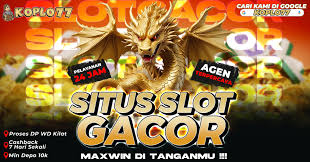Casinos have long captured the imagination of people around the koplo77 login globe. These establishments, often associated with luxury, excitement, and the thrill of chance, have a rich history dating back centuries. From the opulent halls of Monte Carlo to the vibrant lights of Las Vegas, casinos are more than just places to gamble—they are cultural icons that reflect human desires for risk-taking and entertainment.
Origins and Evolution
The concept of a casino traces its roots to ancient times when gambling was a popular pastime among various civilizations. The word “casino” itself originates from Italian, meaning a small house or villa for pleasure. Over time, these gambling houses evolved from simple card games and dice tables to sophisticated venues offering a wide array of games of chance.
In the 17th century, the Ridotto in Venice is often regarded as one of the first recognized casinos. Established in 1638 during the Carnival season, it provided a controlled environment for gambling during a time when it was already prevalent in society but unregulated.
Modern-Day Casinos
Today, casinos are found in almost every corner of the world, each with its unique charm and offerings. Las Vegas, Nevada, stands out as the epitome of the modern casino experience. Often referred to as the “Entertainment Capital of the World,” Las Vegas boasts a staggering array of casinos, hotels, and entertainment venues that attract millions of visitors annually.
Casinos in modern times offer a diverse range of games beyond traditional favorites like blackjack, roulette, and poker. Slot machines, electronic gaming, and sports betting have become integral parts of the casino landscape, appealing to a broader audience.
The Casino Experience
The allure of casinos extends beyond just gambling. These establishments are designed to create an immersive experience for patrons, blending entertainment, dining, and hospitality into a single venue. Lavish décor, live performances, and themed attractions contribute to the overall ambiance, making each visit a memorable event.
Casinos also play a significant role in local economies, particularly in regions where they are a major tourist attraction. They provide jobs, generate revenue through taxes, and stimulate ancillary businesses such as restaurants, hotels, and retail shops.
Responsible Gaming
While the thrill of gambling is a major draw, casinos also prioritize responsible gaming practices. Measures such as age restrictions, self-exclusion programs, and assistance for problem gambling are commonly implemented to ensure that patrons can enjoy their experience in a safe and responsible manner.
Cultural Impact
Beyond their economic and entertainment value, casinos have left an indelible mark on popular culture. They have been featured prominently in literature, films, and music, often symbolizing themes of risk, luck, and ambition. Movies like “Casino Royale” and “Ocean’s Eleven” have helped cement the allure of casinos in the public imagination.
Conclusion
In conclusion, casinos represent more than just places to gamble—they embody a blend of history, culture, and entertainment. From their humble origins to their modern-day extravagance, casinos continue to captivate and inspire people worldwide. Whether seeking a night of excitement or simply marveling at their grandeur, casinos remain timeless institutions that celebrate the human spirit of adventure and chance.

